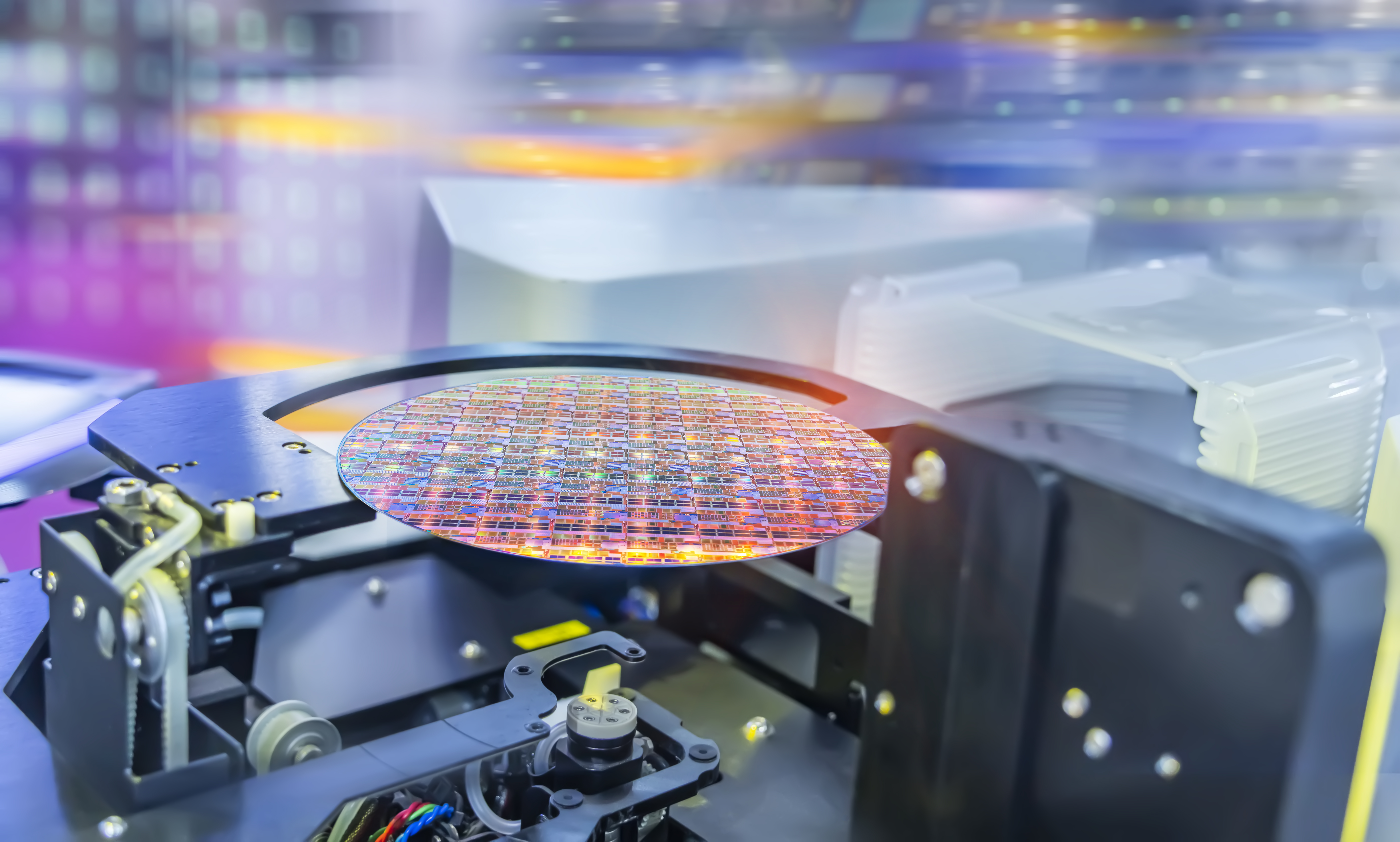Up about 75% year to date as of this writing, Taiwan Semiconductor Manufacturing (TSM 5.28%), or TSMC for short, has been on a strong run this year as it has benefited from the AI infrastructure buildout.
Given the stock’s strong performance this year, the question on many investors’ minds is whether the stock is still a buy. Let’s look at why the stock remains well positioned, as well as some potential risks that it does face.
Riding the AI infrastructure wave
TSMC is the world’s leading semiconductor contract manufacturer, and produces chips for some of the largest tech companies in the world, including Apple and Nvidia. Manufacturing chips is a capital-intensive business that requires building expensive foundries, and high utilization levels are necessary to ensure profits, which is why many of the world’s top semiconductor companies outsource their chip manufacturing.
TSMC has created a wide moat in this business stemming from its scale and technological edge. While TSMC’s strong revenue growth and gross margin expansion in recent quarters might lead to the assumption that this is an easy endeavor and that all companies in the space are benefiting from the boom in artificial intelligence (AI) chips, this is not the case.
In a fact, its two main rivals have been struggling. Intel‘s third-party foundry business has been floundering, with the company putting up huge losses and seeing revenue decline last quarter. Samsung’s foundry business, meanwhile, has been plagued by operational struggles from unstable yields and customer losses.
This has left TSMC with a commanding position in the contract semiconductor manufacturing space with an over 60% market share. The company is the primary manufacturer of Nvidia’s graphics processing units (GPUs), which are seeing unrelenting demand. As a result, it continues to expand its manufacturing presence to help Nvidia try to keep up with customer demand.
Apple, meanwhile, is its largest customer and the company is already believed to have booked all of TSMC’s newest 2 nanometer (nm) technology for its next-generation chips. This is all while TSMC is still ramping up its newer 3nm technology and starting just to gain scale with this technology. Even Intel is using TSMC’s 3nm tech over that of its own foundries.
TSMC’s strong position in the industry, the success of its customers, and its cutting-edge technology have led to strong pricing power for the company. Meanwhile, according to Morgan Stanley, the company has already told customers it will increase prices in 2025. The Wall Street analysts see the company increasing prices by up to 10% for AI semiconductors and chip-on-wafer-on-substrate products.
TSMC’s pricing power and robust capacity utilization has already been leading to a higher gross margin, despite newer technologies initially being margin dilutive until they ramp up. Last quarter, gross margin rose 460 basis points to 57.8%. Two years ago, its gross margin was only 43.4%, showing the huge improvement the company has seen in this area. The higher a company’s gross margin, meanwhile, the more that revenue turns into profits.
Image source: Getty Images.
Risks to Taiwan Semiconductor’s business
While Taiwan Semiconductor is currently operating on all cylinders, the stock does come with risks.
The company has been enjoying robust demand for AI chips and has increased capacity as a result. However, if AI infrastructure spending eventually slows, perhaps as AI models become good enough, then profits could drop and the stock could suffer.
Foundries need high capacity utilization to be profitable, so if its facilities are not running close to full, not only will revenue fall, but margins and profits would sink as well. As such, much of its future success will depend on continued robust demand for semiconductor chips.
The company and many of its foundries are also located in Taiwan, which is a disputed territory that China lays claim to as its own. This adds geopolitical risk, as does the new U.S. presidential administration. Before the election, President-elect Donald Trump criticized Taiwan for dominating the U.S. chip industry and said the island should pay for its own defense.
Is Taiwan Semiconductor stock a buy?
While TSMC does face potential risks, the company is one of the best positioned to benefit from the continued AI infrastructure buildout, as well as any smartphone and PC upgrade cycle that may accompany it. The AI infrastructure buildout still appears to be in the early innings, with capital expenditure (capex) budgets related to AI increasing among large tech companies as they build data centers and large language models (LLMs) that need exponentially more computing power to be trained on as they advance.
From a valuation standpoint, the stock trades at a forward price-to-earnings (P/E) ratio under 21 based on analysts’ 2025 estimates and a price/earnings-to-growth ratio (PEG) just over 1. PEG ratios under 1 are considered undervalued, although growth stocks often carry PEGs much higher.

TSM PE Ratio (Forward 1y) data by YCharts
Taking everything into account, I think TSMC stock looks like a solid option for investors at current levels given its attractive valuation and the growth opportunities still in front of it as AI infrastructure spending continues to ramp up.
Geoffrey Seiler has no position in any of the stocks mentioned. The Motley Fool has positions in and recommends Apple, Intel, Nvidia, and Taiwan Semiconductor Manufacturing. The Motley Fool recommends the following options: short February 2025 $27 calls on Intel. The Motley Fool has a disclosure policy.

